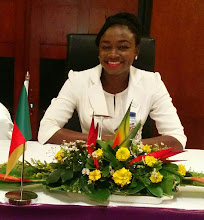


The event sought to boost networks led by Cameroon’s female elected officials, notably: 21 Senators, 56 Deputies in the National Assembly, 29 Mayors, along with female Ministers and women’s civil society organizations.We attended as CSO , and leaders of an association of women professional from the 3 Northern regions of Cameroon.
In Cameroon, women makes almost 52% of the population, but women are not proportionally represented in quantity and quality in elected offices. Some issues raised that might contribute to this situation were discussed and included:
• Low access to birth certificates that leads to inability to vote, with as consequence a low participation of women to electoral process;• Low of access to family planning that keep women at home caring for their many kids;
• Nasty women behavior towards other women;
• “Divide to conquer” A strategy used by men to weaken women’s groups;
Questions raised included
• what are the best strategies for gender regime change ?
• How do we promote women?
• How to maximize informal gathering of women like the jangui? Women are already involved in informal movement, how do we involve in them in the formal, institutional political process?
• what are the best strategies for gender regime change ?
• How do we promote women?
• How to maximize informal gathering of women like the jangui? Women are already involved in informal movement, how do we involve in them in the formal, institutional political process?
• “If you want something ask a man, if you want something done, ask a woman”







No comments:
Post a Comment